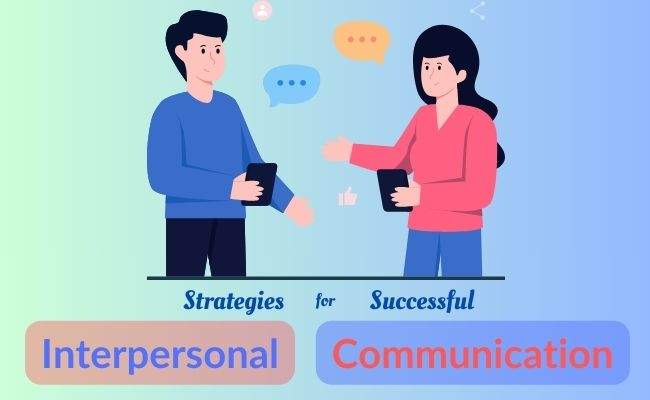


Interpersonal communication is the process of exchanging information, ideas, thoughts, and feelings between two or more people. It involves verbal and nonverbal interactions and is an essential aspect of human interaction and social life.
In interpersonal communication, individuals use various forms of communication, such as spoken language, body language, facial expressions, gestures, and written messages to convey their thoughts, emotions, and intentions to others.
Interpersonal communication can occur in various contexts, including personal relationships, work settings, social gatherings, and virtually through digital communication channels like emails, text messages, and video calls. It is a dynamic and complex process that influences the quality of relationships and the outcomes of interactions between individuals.
In successful interpersonal communication, the message is conveyed clearly, received accurately, and leads to positive outcomes. It builds strong relationships, resolves conflicts, makes informed decisions, and fosters cooperation. Successful interpersonal communication is essential in both personal and professional settings.
The key elements of interpersonal communication include active listening, empathy, feedback, and the ability to adapt one’s communication style to the needs of the situation and the individuals involved. Here are some strategies to enhance your interpersonal communication skills:
Here are different ways to improve your interpersonal communication skills:
Enroll in public speaking workshops or courses to build confidence and develop effective speaking skills. These classes often include practical exercises and feedback sessions to help you refine your communication abilities.
There are many books available that provide valuable insights into improving interpersonal communication. Look for titles like “Crucial Conversations” by Al Switzler and Joseph Grenny or “How to Win Friends and Influence People” by Dale Carnegie.
Mindfulness exercises and meditation can help you become more present and focused during conversations. Being mindful allows you to listen more attentively and respond thoughtfully.
Actively seek feedback from trusted friends, colleagues, or mentors on your communication skills. Constructive criticism can help you identify areas for improvement and work on them.
Recording your conversations or presentations can provide valuable insights into your communication style. You can review the recordings to identify strengths and weaknesses and make necessary adjustments.
Many online platforms offer courses in communication skills. Websites like Coursera, edX, and LinkedIn Learning have a variety of courses, from basic communication skills to advanced negotiation techniques.
Engage in empathy-building exercises, such as role-playing scenarios or volunteering in situations that require active listening and empathy, like crisis hotlines or counseling services.
Expanding your vocabulary can help you articulate your thoughts more precisely. Regularly read books, articles, or listen to podcasts to expose yourself to new words and phrases.
Attend networking events, conferences, or seminars to practice your interpersonal communication skills. These events offer opportunities to engage in conversations with a diverse range of people.
Take courses or workshops on conflict resolution techniques. Learning how to handle conflicts effectively can improve your communication in both personal and professional settings.
Apply what you learn in your daily interactions. Engage in conversations with colleagues, friends, and family, and consciously implement the strategies and techniques you’ve acquired.
Interpersonal communication is an ongoing process that requires dedication and practice. By exploring the diverse strategies, you can continue to refine your communication skills and become a more effective and confident communicator.
Effective interpersonal communication is a valuable skill that can improve relationships, reduce misunderstandings, and enhance your overall quality of life. By implementing these strategies, you can become a more successful communicator in various aspects of your life.